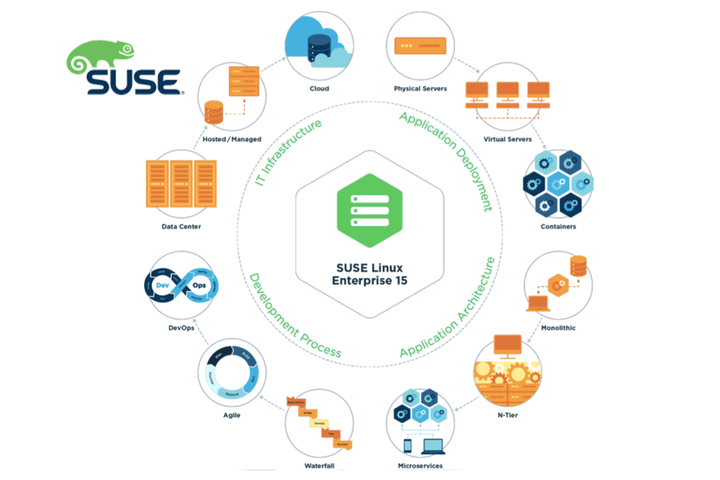

SUSE announced its Enterprise Linux 15 and SUSE Manager 3.2 updates on June 25, ushering in the next generation of enterprise Linux technologies from the Germany-based Linux vendor.
SUSE Enterprise Linux 15 is the first time since 2014 that SUSE has changed the major version for its flagship platform. While SUSE Linux Enterprise 12 was announced back in 2014, SUSE never released a version 13 or 14, deciding instead to skip ahead to version 15 for the new update.
“In various cultures, both 13 and 14 are unlucky numbers,” Matthias Eckermann, director of SUSE Linux Enterprise product management, told eWEEK. “We were asked to not use these by partners and customers, so here we are at 15.”
Among the new features in SUSE Linux Enterprise 15 is a unified installer that SUSE says will enable organizations to more rapidly deploy the operating system. Software package searching has also been improved with an easier management system. Plus, SUSE is aiming to make its enterprise distribution better for developers with an integrated software development kit.
As part of the SUSE Linux Enterprise 15 development cycle, a common code base has been developed as the foundation of multiple SUSE Linux offerings, which includes SUSE Linux Enterprise Server (SLES) for SAP Applications, SLES for Power and SUSE Linux Enterprise for High Performance Computing.
“The common codebase of SUSE Linux Enterprise 15 is or will be the basis of all other products,” Eckermann said. “The codebase is the same for traditional as well as agile deployments.”
SUSE Manager
Managing SUSE Linux Enterprise deployments is where the SUSE Manager offering fits in. The new SUSE Manager 3.2 release enables organizations to manage multiple types of infrastructure, ranging from edge devices to Kubernetes container deployments and the cloud.
“SUSE Manager can build container images from Dockerfiles and from the same staging repositories used for non-container deployments with a click of a button,” Joe Werner, product manager for SUSE Manager, told eWEEK. “So your containers can always be as up to date as your physical/virtual machines.”
Werner added that SUSE Manager 3.2 can help organizations audit containers running on Kubernetes by comparing the containers in a registry as well as the containers running in an organization’s Kubernetes instances against known vulnerabilities. SUSE Manager is not a container orchestration tool, he emphasized. For container orchestration, SUSE has its CaaS (containers as a service) Kubernetes product.
SUSE Manager 3.2 is based on the open-source Spacewalk project, which was originally created by rival Linux vendor Red Hat. Looking forward, Werner said future versions of SUSE Manager will be based on SUSE’s new Uyuni upstream project, which is a Spacewalk fork.
SUSE Manager 3.2 is currently generally available. SUSE Linux Enterprise 15 is set to become available in July.
Sean Michael Kerner is a senior editor at eWEEK and InternetNews.com. Follow him on Twitter @TechJournalist.
[“Source-eweek”]

